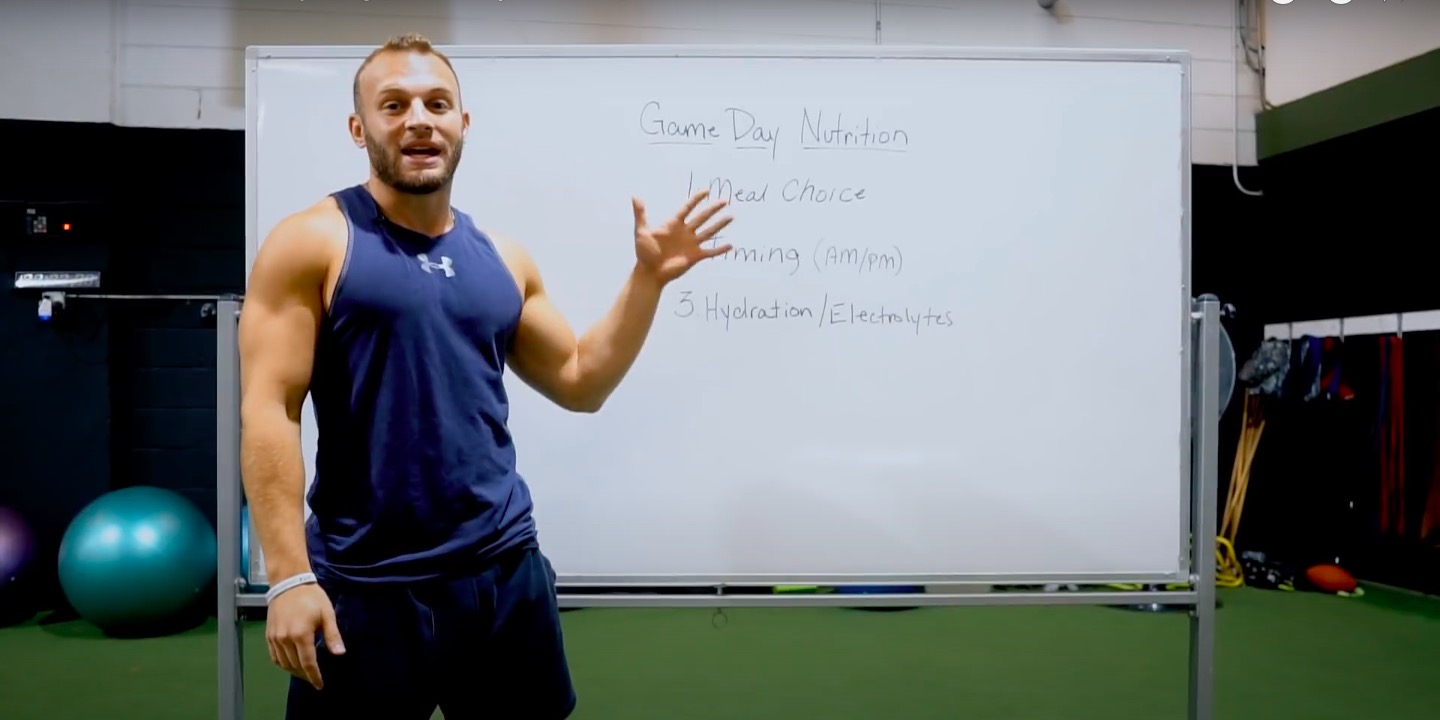Sports nutrition can often end up being the last thing an athlete thinks about… yet it’s one of the most important elements when becoming a stud on the field. Nutrition affects your training, and training affects your game – it’s that simple. Hitting a hard workout doesn’t mean all that much if you don’t fuel yourself the right way with post-workout protein.
I recently invited my Director of Sports Nutrition at OTA, Jake Gottesman to speak on this topic and give you guys some insight into the right way to fuel after a tough training session or game. Here’s a few key tips he shared:
RELATED:
1. Post-Workout Training Window
There’s a lot of discussion in sports nutrition around the importance of eating protein as soon as possible following your workout. This is also known as hitting your “anabolic window.” After training, your muscles are most sensitive to protein and/or amino acids, ready to use for recovery and muscle repair. In my experience, your anabolic window depends on your nutrition throughout the day.
For example if you ate a good meal just before your workout, you don’t need to run to the fridge for your post-workout protein. In fact you can wait up to 1-2 hours before getting your next meal in. However if you’re going into a workout fasted, then I would highly recommended getting in some protein ASAP.
Another great post-workout training tip I like to share with our OTA athletes, is to consume some kind of protein just before bed so your muscles can get to work repairing and re-building.
2. What’s The Deal With Carbs?
Your body stores glucose (aka carbohydrates) within the muscles and liver in the form of a compound known as glycogen. That’s why it’s important to consume something with carbs following your workout, along with protein to replenish the muscles from exhaustion. I recommend doing this by consuming some type of starch along with a fruit.
I also tell athletes to consume some sort of low-dose caffeine to help shuttle carbohydrates throughout the body. Green tea is a great example. Add just a small amount of fat and you’ve got the perfect, balanced post-workout meal. Your body needs protein, fats, and carbohydrates to function at its maximum efficiency. You can check out how to find your personal macronutrient ratio here.
3. Hydration
Finally, as you go through your workout sweating, this means you’re constantly losing precious minerals and electrolytes that are extremely important for body function. Lack of electrolytes can lead to diminished muscle function and performance, cramping and in extreme cases – life threatening conditions like coma or heart attack.
That’s why it’s important to actively replenish those lost electrolytes throughout your session to keep training at maximum capacity. I recommend drinking water first thing in the morning after waking up, pre-workout, during your workout, post-workout, and throughout your day – drinking to thirst.
DISCLAIMER: The information contained on this blog, website, and related content (such as Instagram posts) are of a general nature. They are not intended to treat, diagnose, or give specific medical advice.
Sports Nutrition for Athletes

No matter how long or how hard you’ve been training, if you don’t pair your workouts with the proper nutrition – you’re giving up some of your potential.
If you want to maximize your performance, recover faster, build more muscle, and play your sport with more explosiveness – enter Performance Nutrition. Masterfully crafted to the specific needs of hard-working athletes like you, this program teaches you the exact 3 parameters for game day, sports nutrition:
- Performance Macronutrient Ratio (find what’s specific to you)
- Meal Frequency
- Meal Timing
This is where you draw the line between mediocrity and becoming an elite athlete. Are you in?